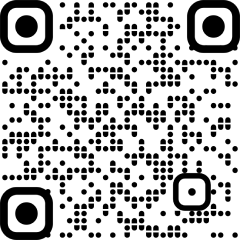
Demographic details stored in ABHAs shared with others after getting patients’ consent: Govt, ET HealthWorld
New Delhi: The demographic details collected and stored in ABHAs (Ayushman Bharat Health Accounts) are made available to the government and private entities who have integrated with the Ayushman Bharat Digital Mission (ABDM) only after receiving the patients’ consent, Parliament was informed on Friday. “Privacy by design” is one of the key guiding principles of the ABDM and implemented following the principles of federated digital architecture and therefore, there is no centralised repository of health records, Minister of State for Health Prataprao Jadhav said in a written reply to a question in the Lok Sabha. The ABDM facilitates secure data exchange between the intended stakeholders on its network after the patients’ consent, Jadhav said.
“Through ABDM-enabled applications, patients will also be able to securely store their digital health records on their devices, securely access their records online and securely share their health records with healthcare providers after their consent,” the minister added.
ABHA is a 14-digit random number and a unique identifier for each individual participating in the national digital health ecosystem.
It is one of the three registries (the Health Professional Registry and the Health Facility Registry are the other two) being created under the ABDM, which aims at enabling interoperability of health data within the health ecosystem, Jadhav elaborated.
“The aim of ABDM is to enable creation of Electronic Health Records (EHRs) for every citizen and their secure and seamless sharing among the healthcare providers to provide quality and accessible healthcare. ABHA enables interaction of citizens with participating healthcare providers, and allows them to receive their health records, including their digital lab reports, prescriptions and diagnosis, seamlessly from verified healthcare professionals and health service providers,” Jadhav said.
For creating an ABHA, demographic details (such as name, gender, date of birth etc.) of an individual are required. These details are taken from the KYC documents (presently via Aadhaar or driving licence) submitted by the user.
These details are then duly authenticated via multiple modes, such as Aadhaar, OTP, biometric, face, demographic, or at authorised facilities.
Prior consent of the users is obtained before creating their ABHA. An ABHA can be generated by users through the websites, mobile applications, digital solutions, government programmes etc. integrated with the ABDM.
The above demographic details in the ABHA registries are stored in a secure manner by the National Health Authority (NHA). It is necessary for these details to be stored centrally because these are essential to provide interoperability, trust and identification, and the single source of truth across different digital health systems, Jadhav said.
“The ‘Privacy by design’ is one of the key guiding principles of ABDM and implemented following the principles of federated digital architecture. There is, therefore, no centralised repository of health records. ABDM facilitates secure data exchange between the intended stakeholders on ABDM network after the patient’s consent,” he added.
The Information Technology Act, 2000, along with policies and guidelines including but not limited to the Health Data Management Policy, Sandbox Guidelines etc. published by the ABDM from time to time, lay down the regulatory and policy framework for its regulation, the minister said.
As mentioned, only demographic details of an individual are collected as part of the scheme. No data of a patient’s health records is collected by the ABDM, Jadhav asserted.
“The demographic details, collected and stored in ABHA, are made available to the government and private entities who have integrated with ABDM only after receiving the patient’s consent,” he said.
Jadhav further clarified that the creation of ABHAs is voluntary. Thus, those who registered themselves on CoWIN were not automatically registered for ABHAs.
A total of 12,97,96,728 ABHAs were created through the CoWIN portal till November 24, the minister informed.
The ABHAs have been created for those beneficiaries enrolled through CoWIN who have provided Aadhaar as the ID proof at the vaccination site only after taking their consent through the vaccinator, he said.
The total number of ABHAs created till November 23 is 68,65,84,586, he added.
“The data (state) against these ABHA numbers has not been populated as state and district fields were not mandatory fields during ABHA creation through demographic authentication. In September 2023, the state and district fields have been made mandatory,” the minister explained.
Visit: Valley Vision News







